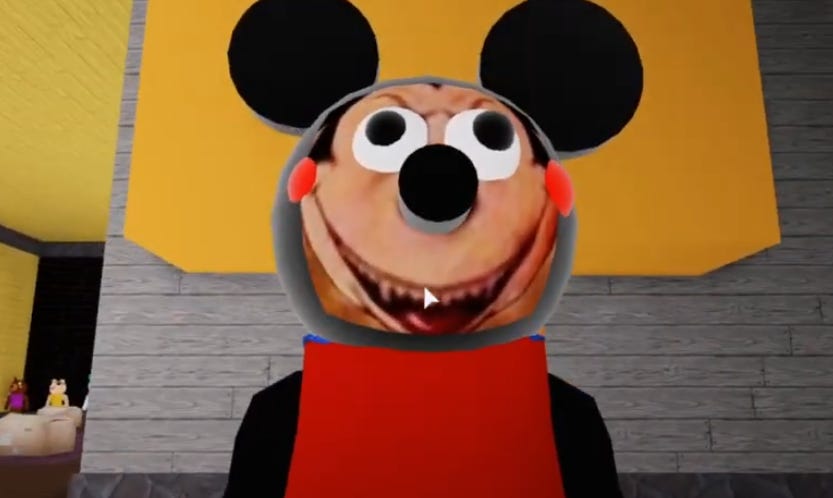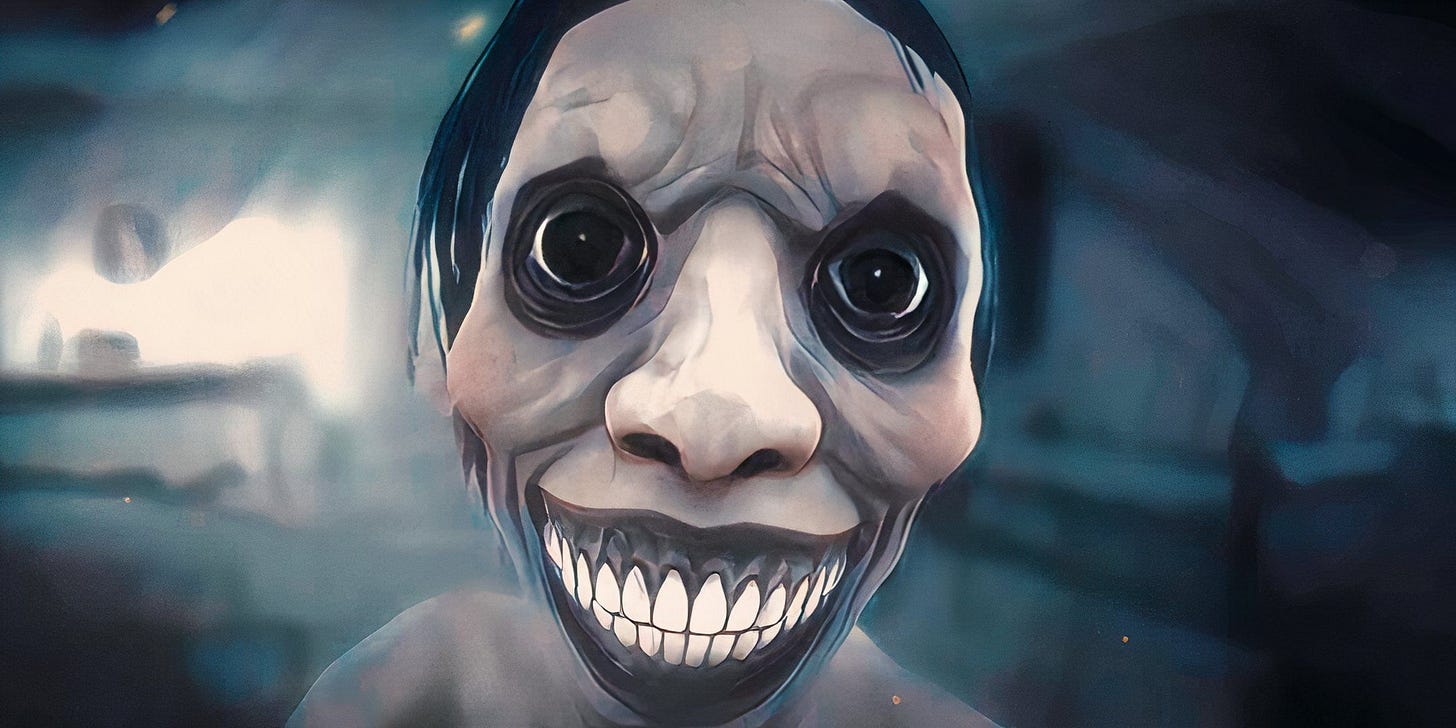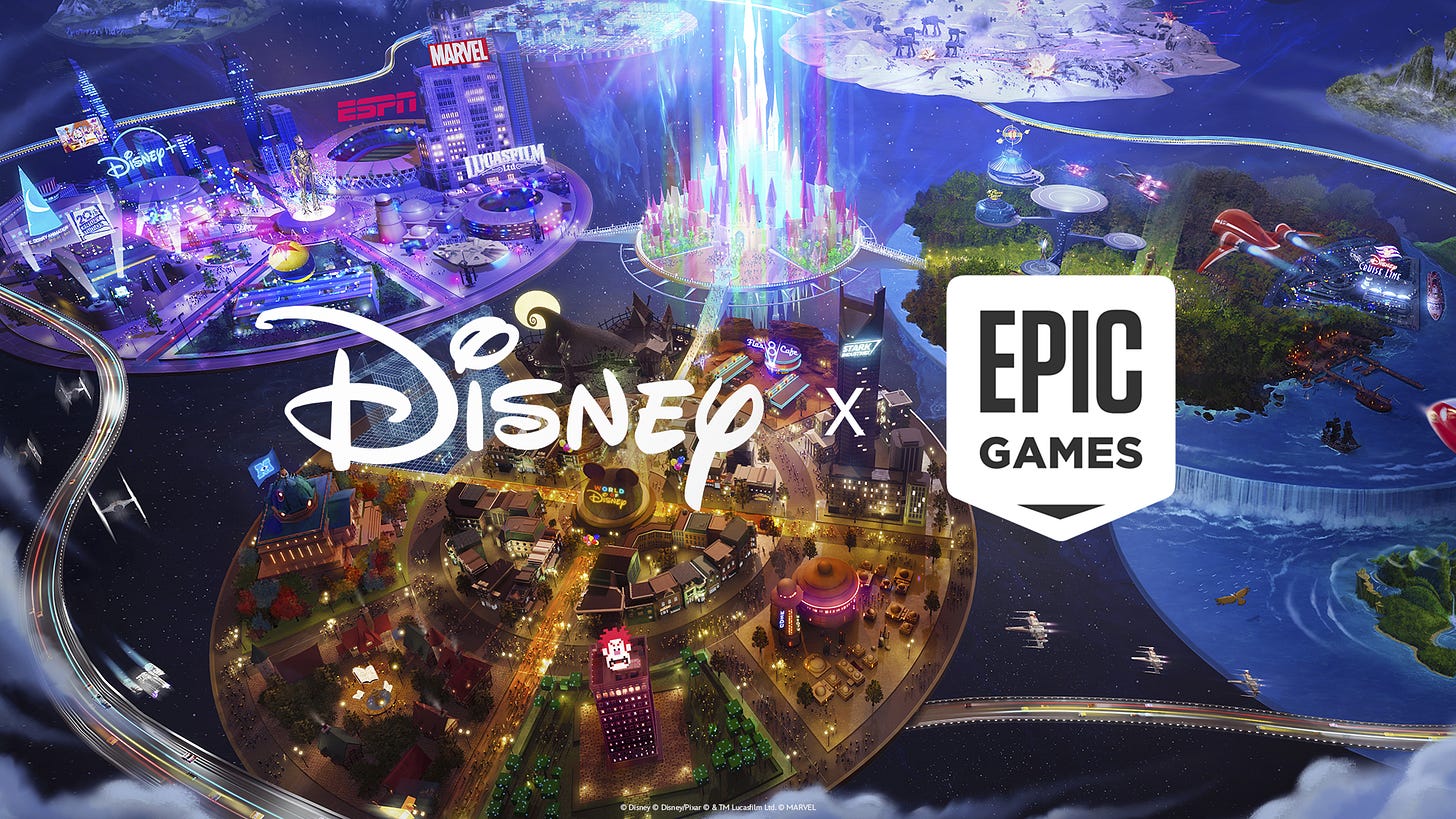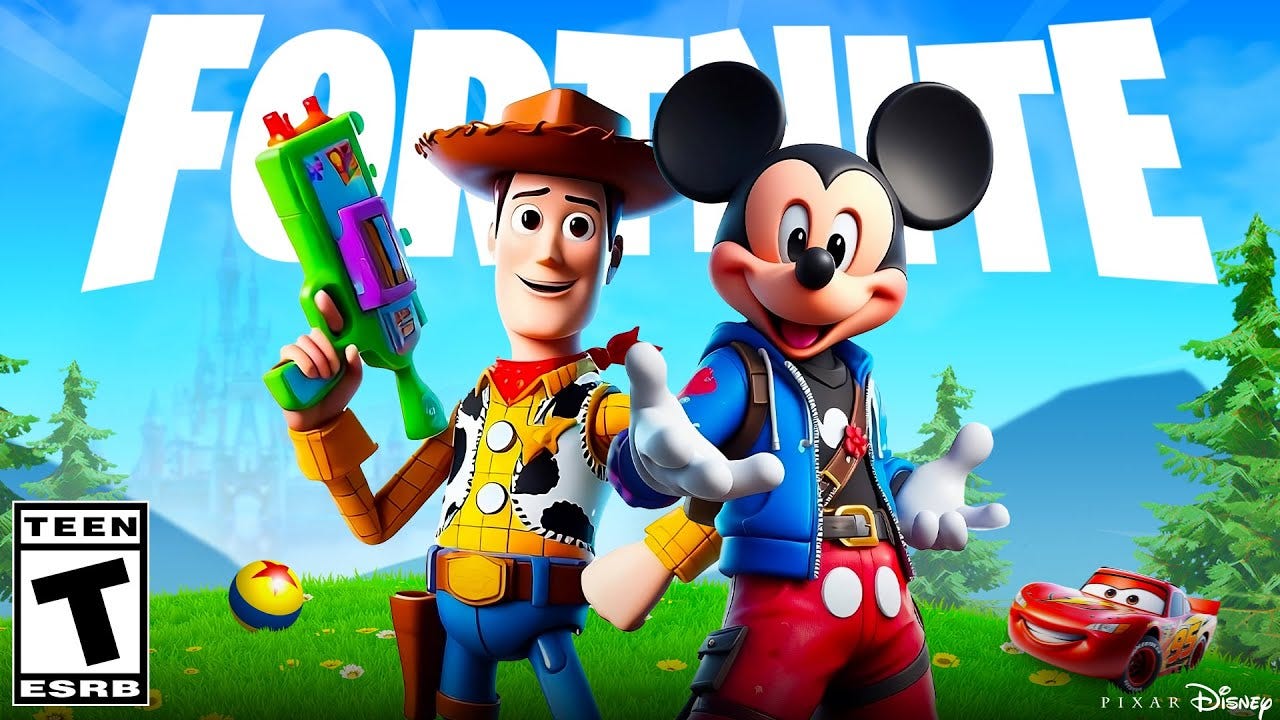Could Roblox’s Predator Crisis Become Disney’s Fortnite Nightmare?
Disney is going all-in on Fortnite, but could recent Roblox controversy dampen the magic?
Online gaming is a kid’s paradise, where millions flock to build, battle, and bond in vibrant digital worlds like Roblox and Fortnite. But beneath the colorful chaos lies a darker reality: predators exploiting these platforms to target children.
Roblox is reeling from a 2025 wave of lawsuits and backlash over grooming and abductions, even as it rolls out new AI tools to fight back. Meanwhile, Disney’s bold $1.5 billion bet on Epic Games to craft a family-friendly “persistent universe” tied to Fortnite is making headlines.
With both games drawing massive young audiences, could Roblox’s ongoing scandals foreshadow trouble for Disney if Fortnite’s defenses slip? The stakes are sky-high for the Mouse House’s kid-centric brand.
Here’s the TL;DR…
Roblox faces intensifying heat in 2025, with lawsuits over abductions of kids as young as 10, over 13,000 child exploitation reports in 2023, and a controversial ban on influencer Schlep for exposing predators.
Fortnite isn’t immune, with 2025 arrests tied to pedophiles luring kids via in-game chats, echoing past warnings about its communication features.
Disney’s Fortnite-linked universe, still years out, aims to blend Marvel, Pixar, and more, but its young demographic could mirror Roblox’s risks without robust safeguards.
Speculation swirls: Roblox’s moderation struggles highlight the need for Disney to overinvest in safety to shield its wholesome image from potential PR disasters.
Roblox’s Predator Problem Hits Fever Pitch
Roblox isn’t just a game—it’s a sprawling universe where kids create, play, and chat across 70 million daily active users. But its open nature has a dark side. In 2023, Roblox reported over 13,000 child exploitation incidents to the National Center for Missing and Exploited Children (NCMEC), a massive jump from 3,000 the prior year. Lawsuits are piling up, painting a grim picture.
On August 5, a California family sued, alleging a 10-year-old girl was groomed and kidnapped by a predator she met on Roblox, with the platform failing to intervene. This marks the third such case in a month, following similar abductions in Texas and Florida. Another suit claims a 13-year-old was coerced into sending explicit content, with families slamming Roblox’s moderation as woefully inadequate.
The platform’s scale—6 billion daily messages—overwhelms its moderation teams, insiders say. Predators reportedly bypass filters and return with new accounts after bans. Roblox is fighting back: On August 8, it launched Sentinel, an open-source AI designed to catch predatory language in chats, leading to 1,200 NCMEC reports in early 2025. But critics call it unproven, and whistleblowers warn the company’s stretched thin.
The drama escalated when Roblox banned influencer Schlep (@RealSchlep on X) on August 9-10. Schlep, who claims his exposés led to six predator arrests, was hit with a cease-and-desist for “simulated child endangerment conversations” under Roblox’s anti-vigilante policy. The move sparked a firestorm on X, with thousands of likes and reposts accusing Roblox of targeting whistleblowers while predators roam free. Users point out that banned offenders often sneak back, fueling distrust. With a Chicago law firm representing 400 families in lawsuits and Florida’s Attorney General subpoenaing Roblox in April, the platform faces a reckoning.
Fortnite’s Own Predator Scares
Fortnite, Epic Games’ battle royale juggernaut, has its own troubling history. With 650 million registered users, many under 13, its voice and text chats have long been predator magnets. In 2025, arrests made headlines: In March, a convicted pedophile lured at least six boys via Fortnite, trading in-game gifts for explicit content.
In June, a 19-year-old kidnapped a 14-year-old girl he met in-game. These echo earlier red flags from the NSPCC, which noted one in four kids faced stranger contact through games like Fortnite.
Epic has ramped up defenses with parental controls, chat filters, and AI moderation, reducing incidents compared to Roblox’s ongoing saga. But team-based play encourages stranger interactions, and experts warn vulnerabilities persist. Fortnite’s kid-heavy demographic makes it a prime target, and 2025’s cases show predators haven’t vanished. As Disney eyes a deeper Fortnite integration, these risks loom large.
Disney’s Big Fortnite Bet: Magic or Mayhem?
Disney’s not playing small. In February 2024, it dropped $1.5 billion for a 9% stake in Epic Games, aiming to build a “persistent universe” blending Fortnite with its iconic IPs—think Star Wars battles, Pixar adventures, or Marvel showdowns. CEO Bob Iger called it Disney’s “biggest gaming foray ever,” targeting Gen Z and millennials glued to virtual worlds. Recent updates confirm progress: At Unreal Fest 2024, Epic teased “persistent experiences” with Disney characters, though the project’s “a few years away.” Past crossovers, like Marvel events drawing 15 million players, show the potential.
But Disney’s family-friendly brand is a double-edged sword. Fortnite’s young audience mirrors Roblox’s, and any misstep could tarnish the Mouse House’s reputation. Epic’s CEO dismissed slowdown rumors in August, but scaling a kid-safe universe is no easy feat. Disney’s park-level safety expertise could help, but gaming’s Wild West demands next-level vigilance.
Could Roblox’s Woes Foreshadow Disney’s Trouble?
Here’s the speculation: Roblox’s nightmare offers a cautionary tale. Its struggles—bypassed filters, delayed bans, and the Schlep backlash—expose the challenges of policing kid-centric platforms. Fortnite shares similar risks: young players, open chats, and user-generated content. Disney’s universe could amplify these with immersive, social spaces drawing even more kids. If predators exploit gaps, as seen in Roblox’s abduction cases or Fortnite’s 2025 arrests, the fallout could be catastrophic for Disney’s image.
Roblox’s Sentinel AI shows progress, but lawsuits suggest it’s not enough. Fortnite’s controls are stronger, but not foolproof. Disney might need to push Epic for cutting-edge measures—real-time grooming detection, stricter age verification, or even human moderators on steroids. Without them, a single high-profile scandal could spark lawsuits or stock dips, as Roblox saw post-2024 allegations. The FBI’s warnings about grooming networks in games add urgency: Disney must go all-in to avoid turning its dream world into a PR nightmare.
Is Fortnite Safe for Kids in 2025?
Fortnite’s safer than it was, thanks to Epic’s parental tools like chat bans and playtime limits. But 2025 arrests prove risks remain. Parents should monitor chats, set strict settings, and talk about stranger danger. No platform is 100% secure—vigilance is key.
How Can Parents Protect Kids on Roblox or Fortnite?
Both platforms offer controls: Roblox’s age filters and chat restrictions, Fortnite’s friend limits and content blocks. Discuss red flags like personal info requests. Use NCMEC and FBI resources for guidance, and report suspicious activity to platforms and police. Supervision trumps tech every time.
The Bottom Line: A Wake-Up Call for Gaming Giants
Roblox’s crisis—lawsuits, abductions, and the Schlep ban—shows the high cost of lax moderation. Fortnite’s incidents, though fewer, signal it’s not immune. As Disney dives into Fortnite’s universe, it must learn from Roblox’s missteps, doubling down on safety to protect kids and its brand. Regulatory eyes are watching, and public trust hangs in the balance. The next few years will test whether gaming giants can keep the magic alive without letting predators steal the show.
Sources
ABC News: Roblox rolls out open-source AI system to protect kids
Anapol Weiss: Roblox Sued After Predator Abducts 10-Year-Old Girl
Bloomberg: Roblox Predator Problem Potentially Exposes Kids to Pedophiles
Child Rescue Coalition: CRC Responds to Fortnite Kidnapping Case in California
Courthouse News: Family sues Roblox, Discord over kidnapping of 10-year-old girl
Thumbnail credit: EFC Gaming on Youtube
Editorial assistance: Ivy Adams.






